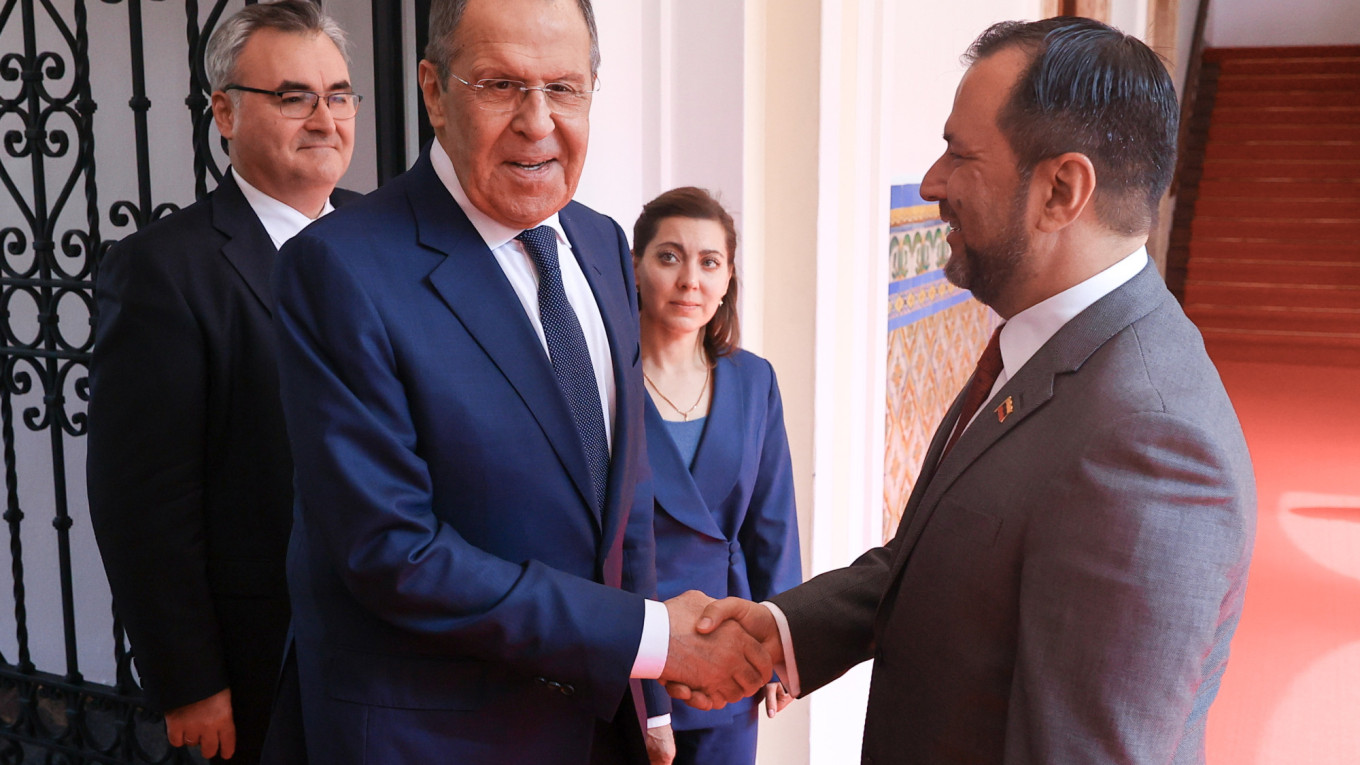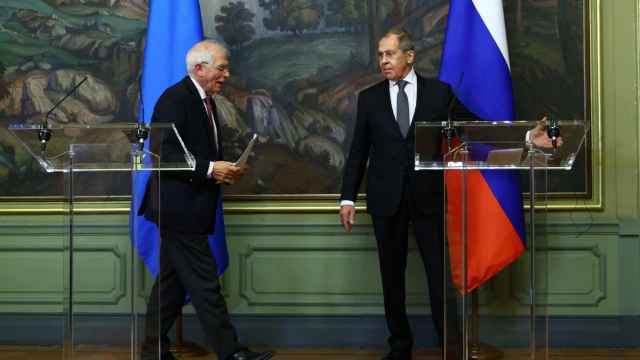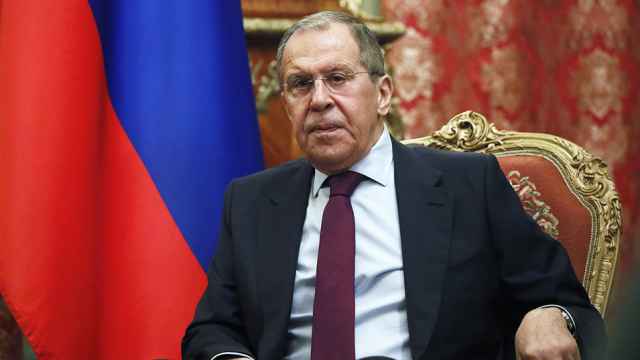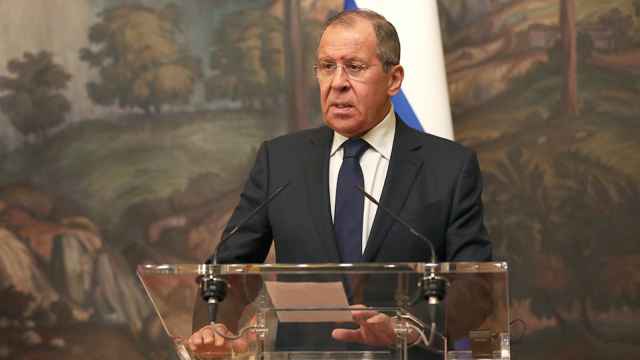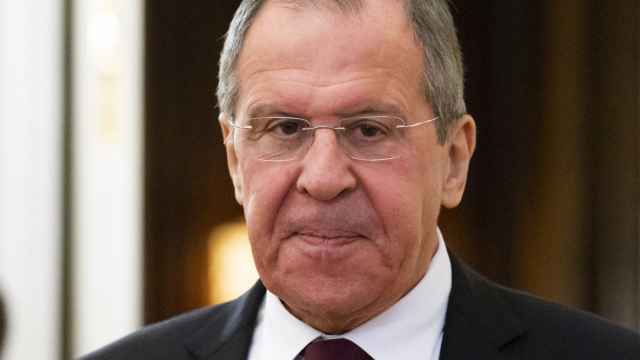Russian Foreign Minister Sergei Lavrov called Tuesday for like-minded countries to "join forces" against the "blackmail" of Western sanctions, as the longtime diplomat continued his tour of Latin America.
Discussing Russia's war on Ukraine with counterpart Yvan Gil in Caracas, Lavrov referred to allies Venezuela, Cuba and Nicaragua as countries "that choose their own path."
All are, like Russia, the subject of damaging economic sanctions, he said.
"It is necessary to join forces to counter the attempts of blackmail and illegal unilateral pressure of the West," Lavrov said at a joint press conference with Gil.
Russia's top diplomat is on a week-long Latin American tour that started in Brazil and will also take him to Nicaragua and Cuba — where the leftist governments have hostile relations with the United States.
He spoke as Brazilian President Luiz Inacio Lula da Silva, under fire from the United States for "parroting Russian and Chinese propaganda," on Tuesday clearly condemned Russia's invasion of Ukraine.
The White House on Monday — the same day that Lula met with Lavrov in Brasilia — had criticized the Brazilian leader for recently saying that Washington was "encouraging the war" in Ukraine and that Kyiv shared blame for the conflict.
On Tuesday, Lula insisted that while his government "condemns the violation of the territorial integrity of Ukraine" it also defends "a negotiated political solution to the conflict."
On Russia's war, Lavrov said: "We will resolve the situation" by upholding the principles of the United Nations' founding charter on the "sovereign equity of states, on the principle of indivisibility of security."
"Our task is to ensure that the UN charter is fully implemented, that the right to self-determination is not eliminated when it suits the West," he said, according to an official translation.
Lavrov also met with Venezuelan President Nicolas Maduro, who afterward tweeted that it was a "pleasant meeting that strengthened bilateral relations."
Venezuela has long been a key Moscow ally, and Maduro has repeatedly expressed his support for Russia and President Vladimir Putin both before and after the invasion of Ukraine.
Russia, for its part, has supported Caracas in the face of sanctions imposed by the United States.
The opposition in Venezuela, backed by a large swathe of the international community, did not recognize Maduro's re-election in 2018 in a vote widely dismissed as fraudulent.
At the bilateral level, Russia and Venezuela announced that they have signed agreements regarding oil and mining.
Lavrov will later travel to Cuba, which is facing a serious economic crisis.
Cuban President Miguel Diaz-Canel visited Russia at the end of November, where he announced he had signed several agreements concerning oil supplies to the island. However, fuel shortages persist.
Lavrov is expected to make a final stop in Managua, where he will meet with Nicaraguan President Daniel Ortega.
A Message from The Moscow Times:
Dear readers,
We are facing unprecedented challenges. Russia's Prosecutor General's Office has designated The Moscow Times as an "undesirable" organization, criminalizing our work and putting our staff at risk of prosecution. This follows our earlier unjust labeling as a "foreign agent."
These actions are direct attempts to silence independent journalism in Russia. The authorities claim our work "discredits the decisions of the Russian leadership." We see things differently: we strive to provide accurate, unbiased reporting on Russia.
We, the journalists of The Moscow Times, refuse to be silenced. But to continue our work, we need your help.
Your support, no matter how small, makes a world of difference. If you can, please support us monthly starting from just $2. It's quick to set up, and every contribution makes a significant impact.
By supporting The Moscow Times, you're defending open, independent journalism in the face of repression. Thank you for standing with us.
Remind me later.


